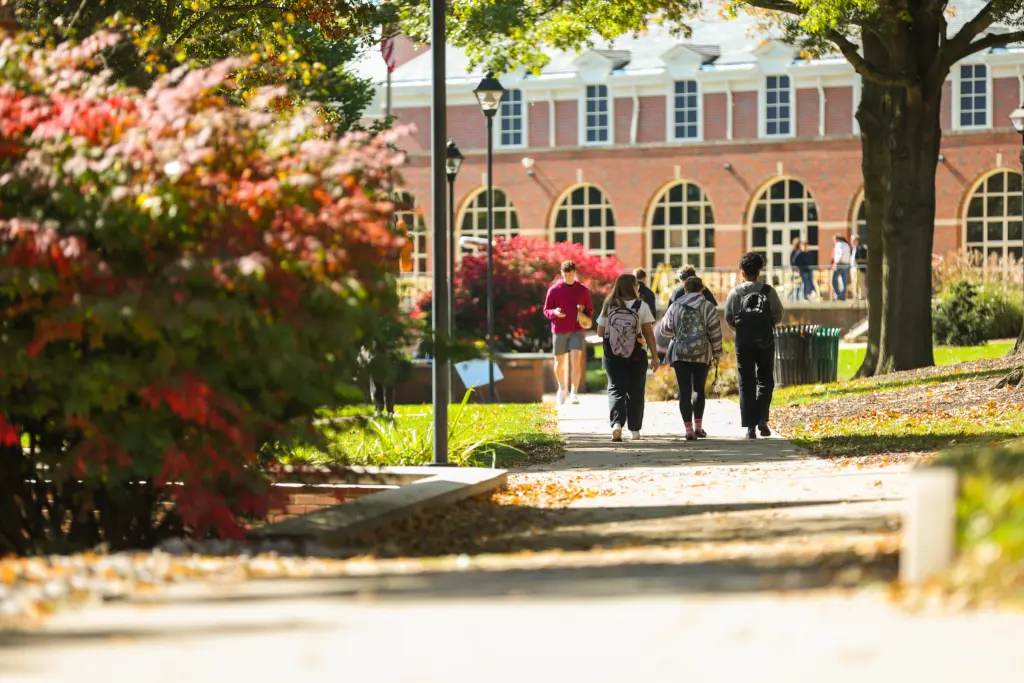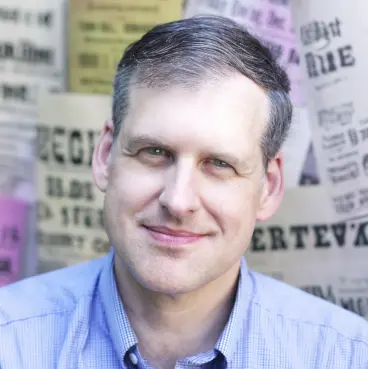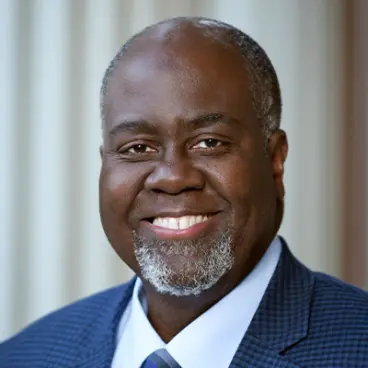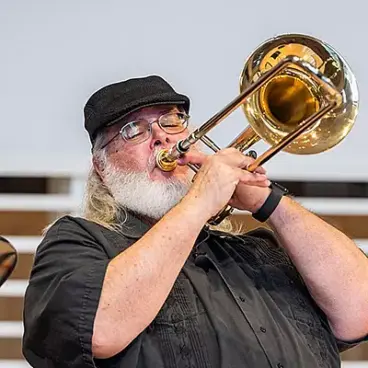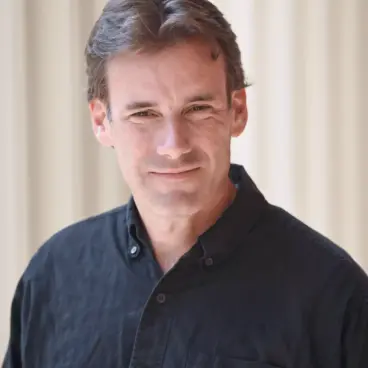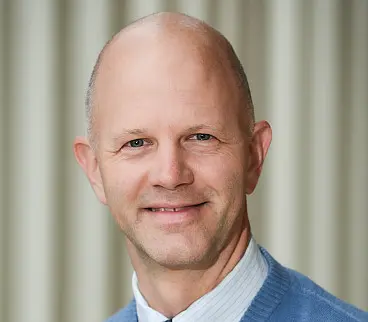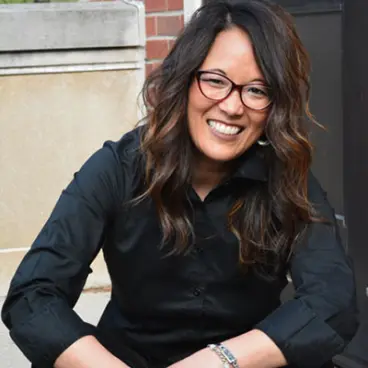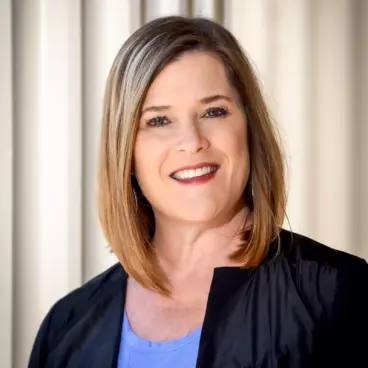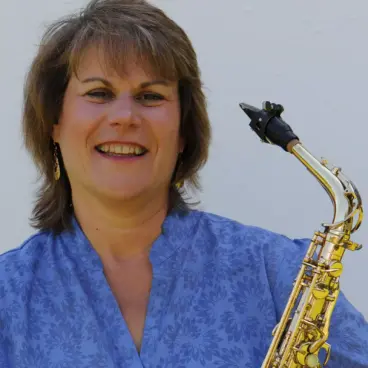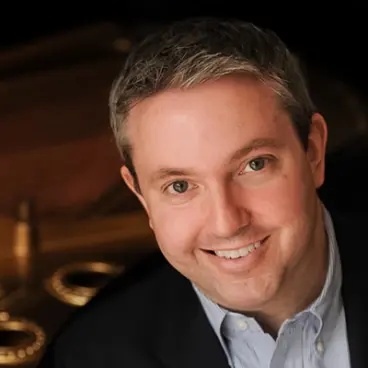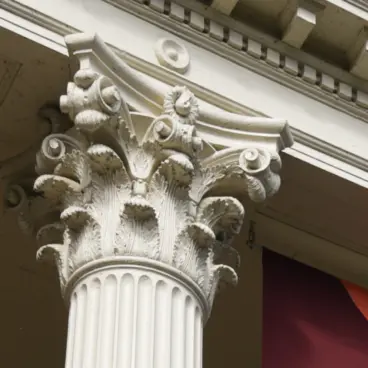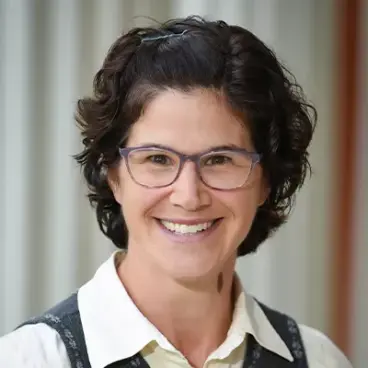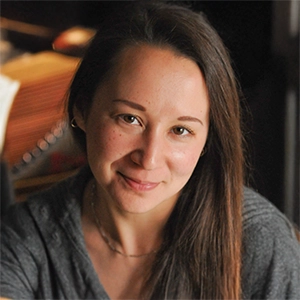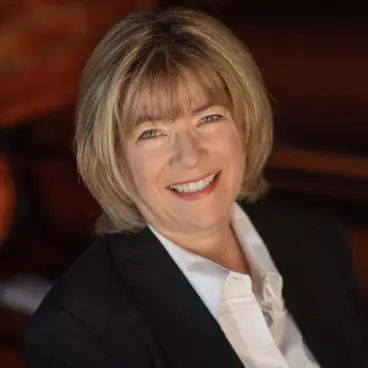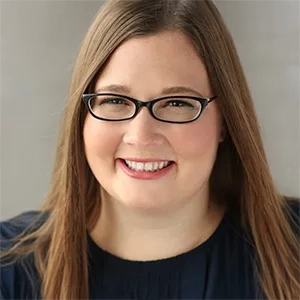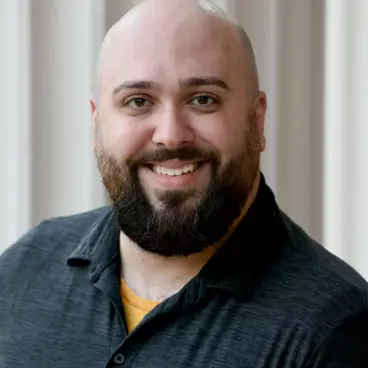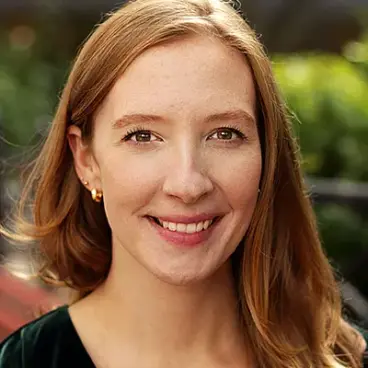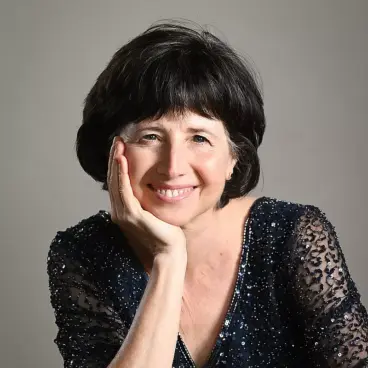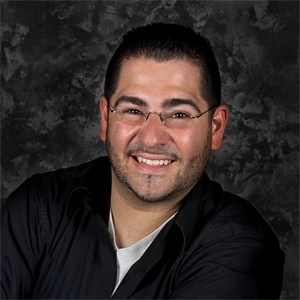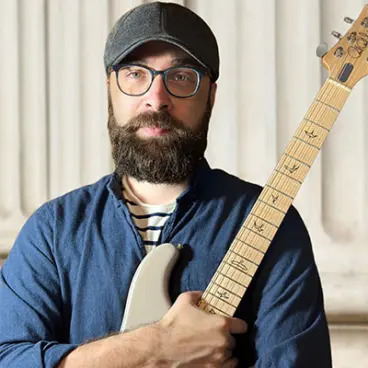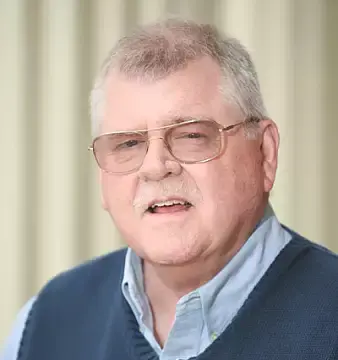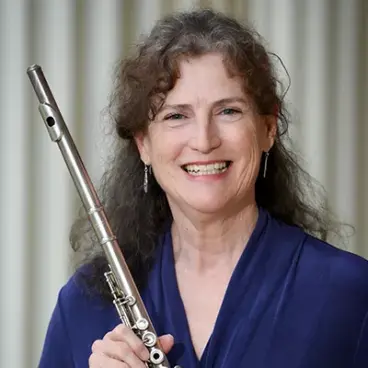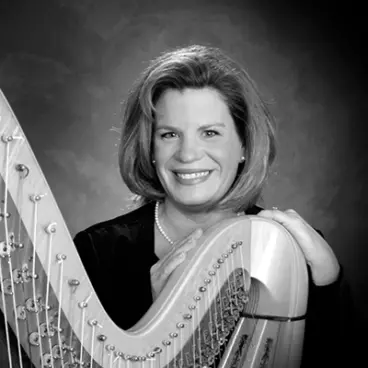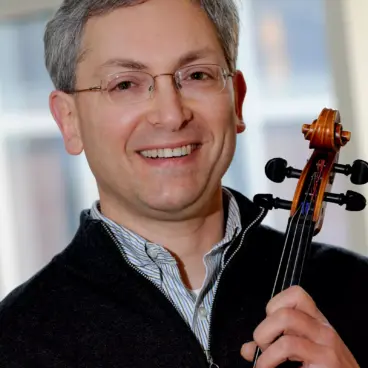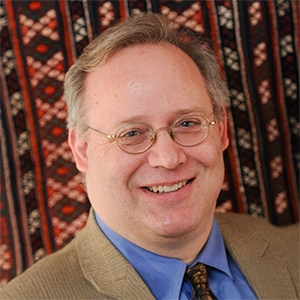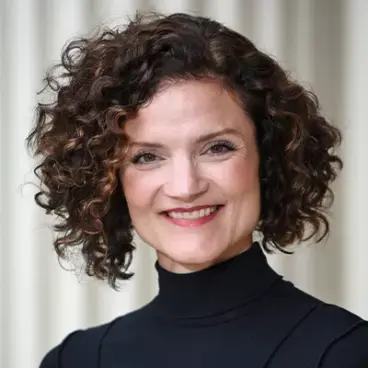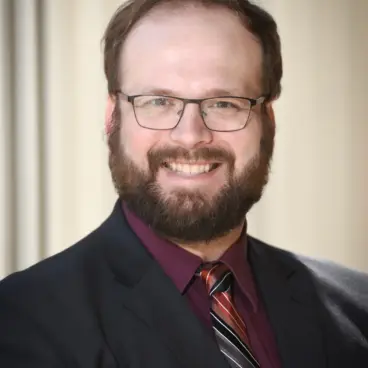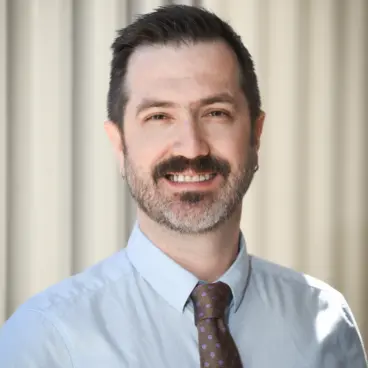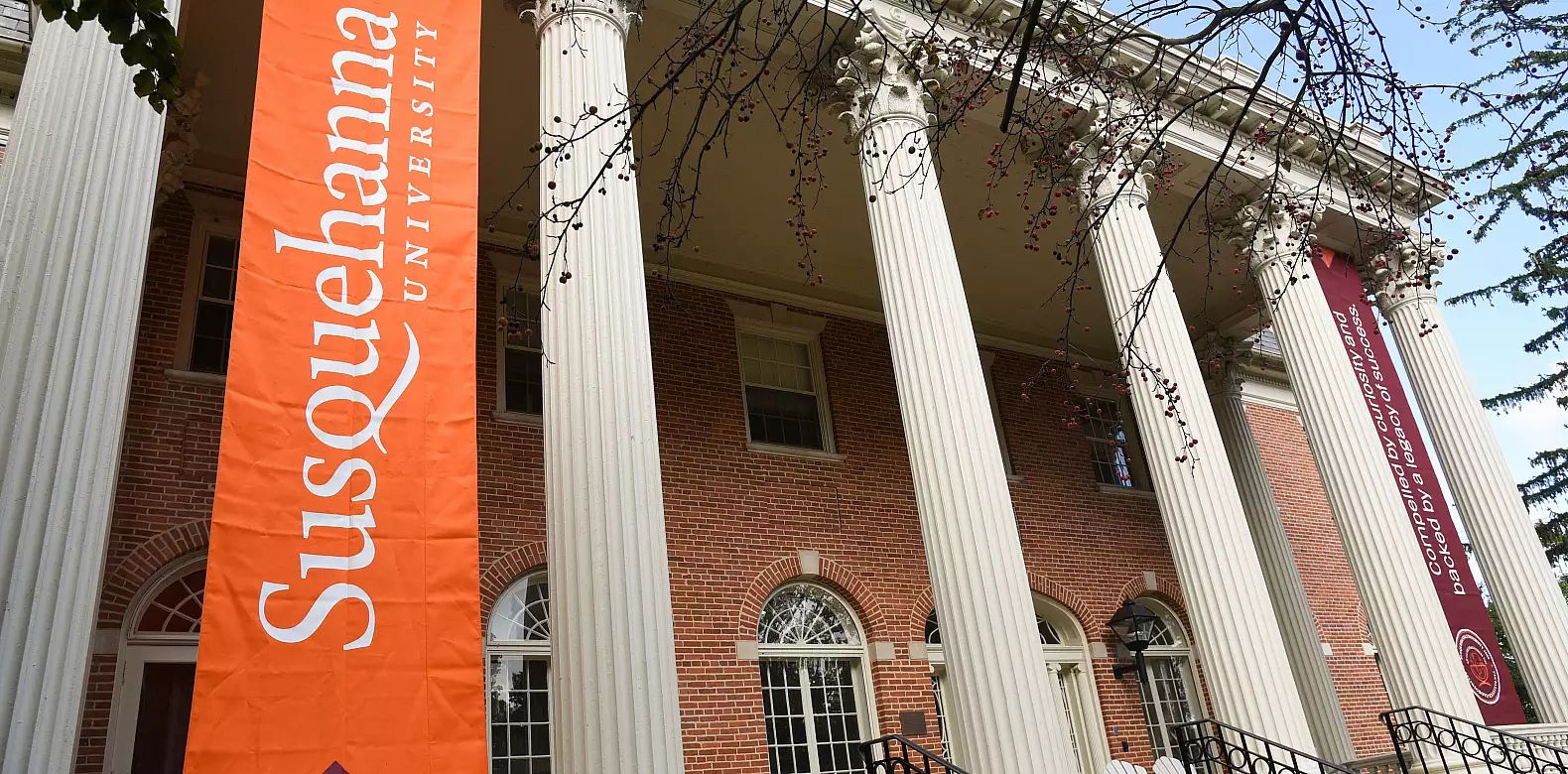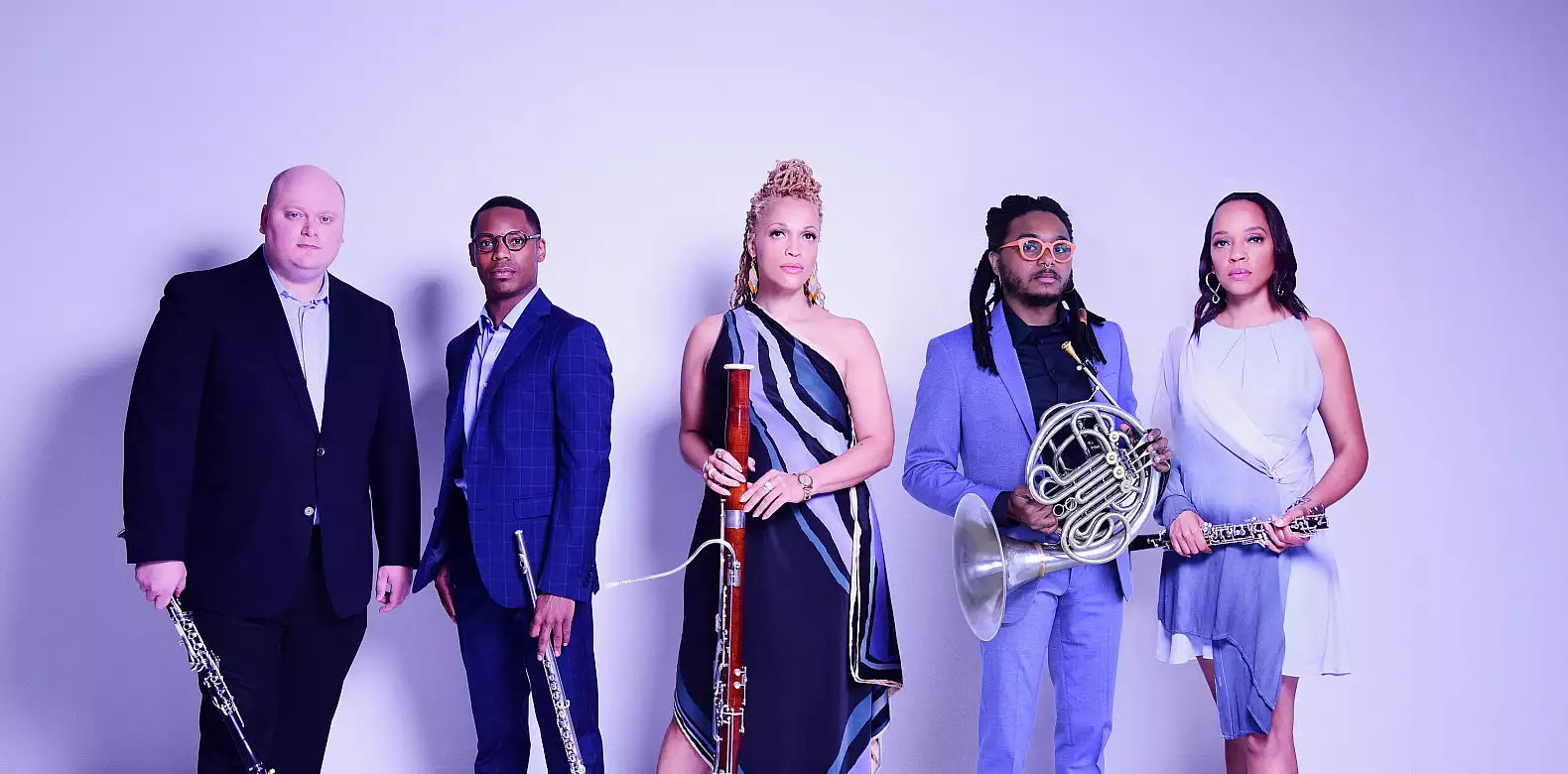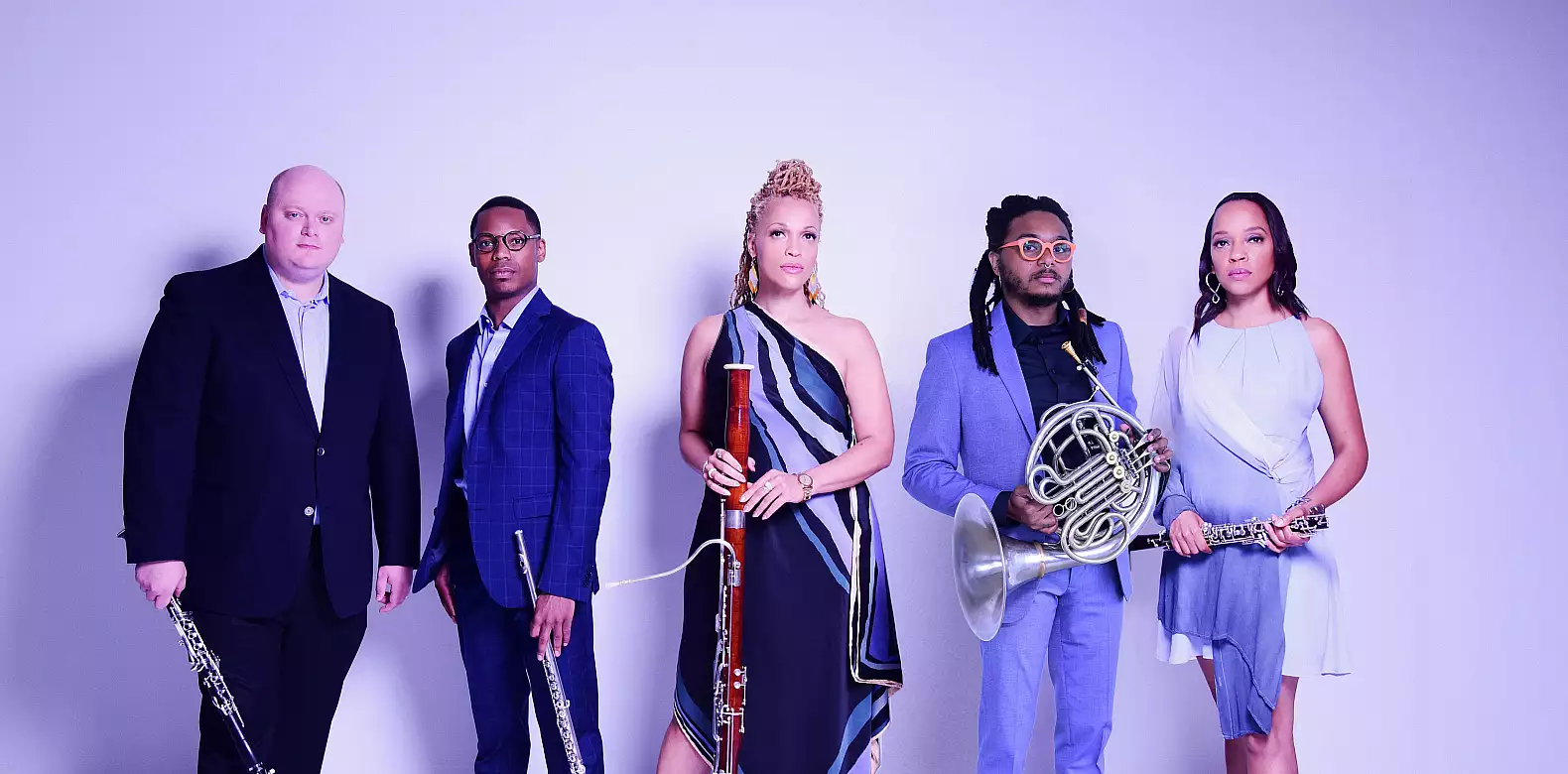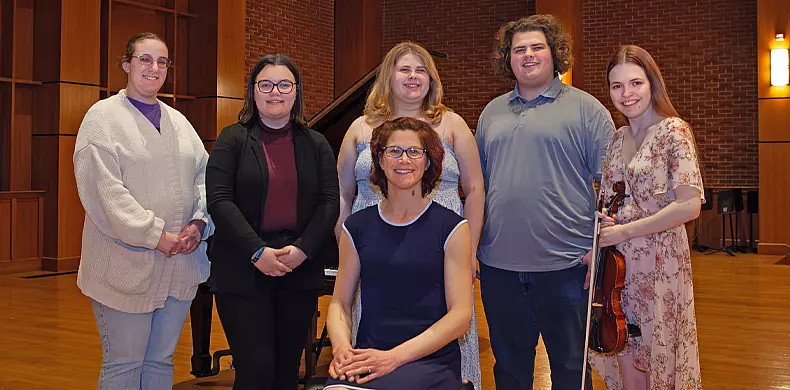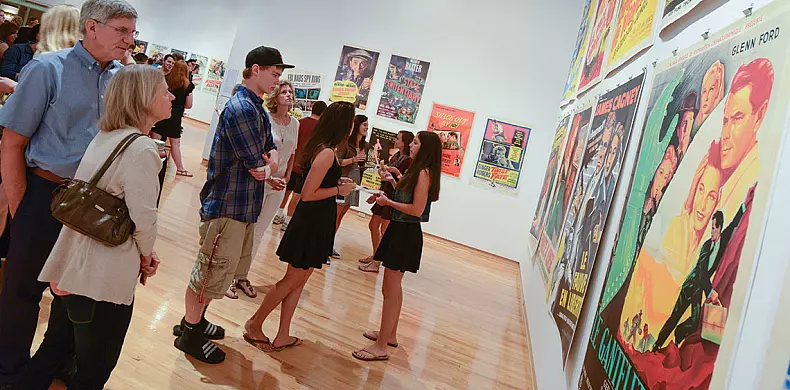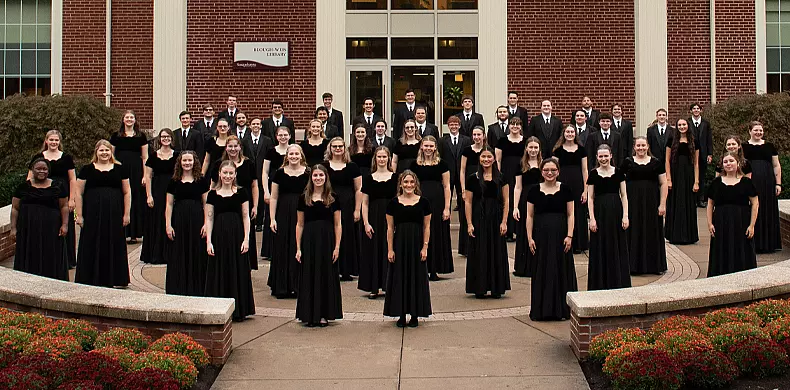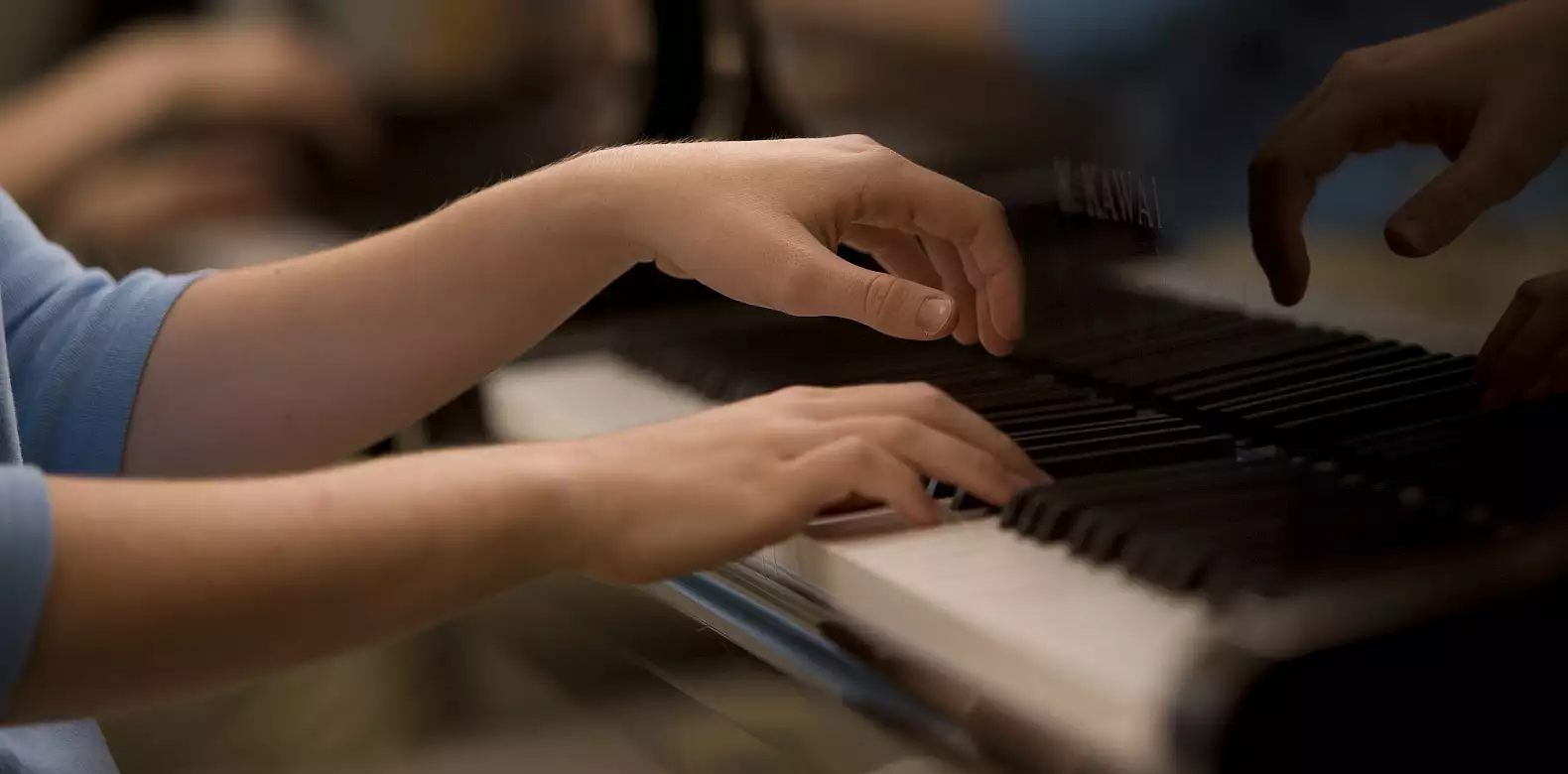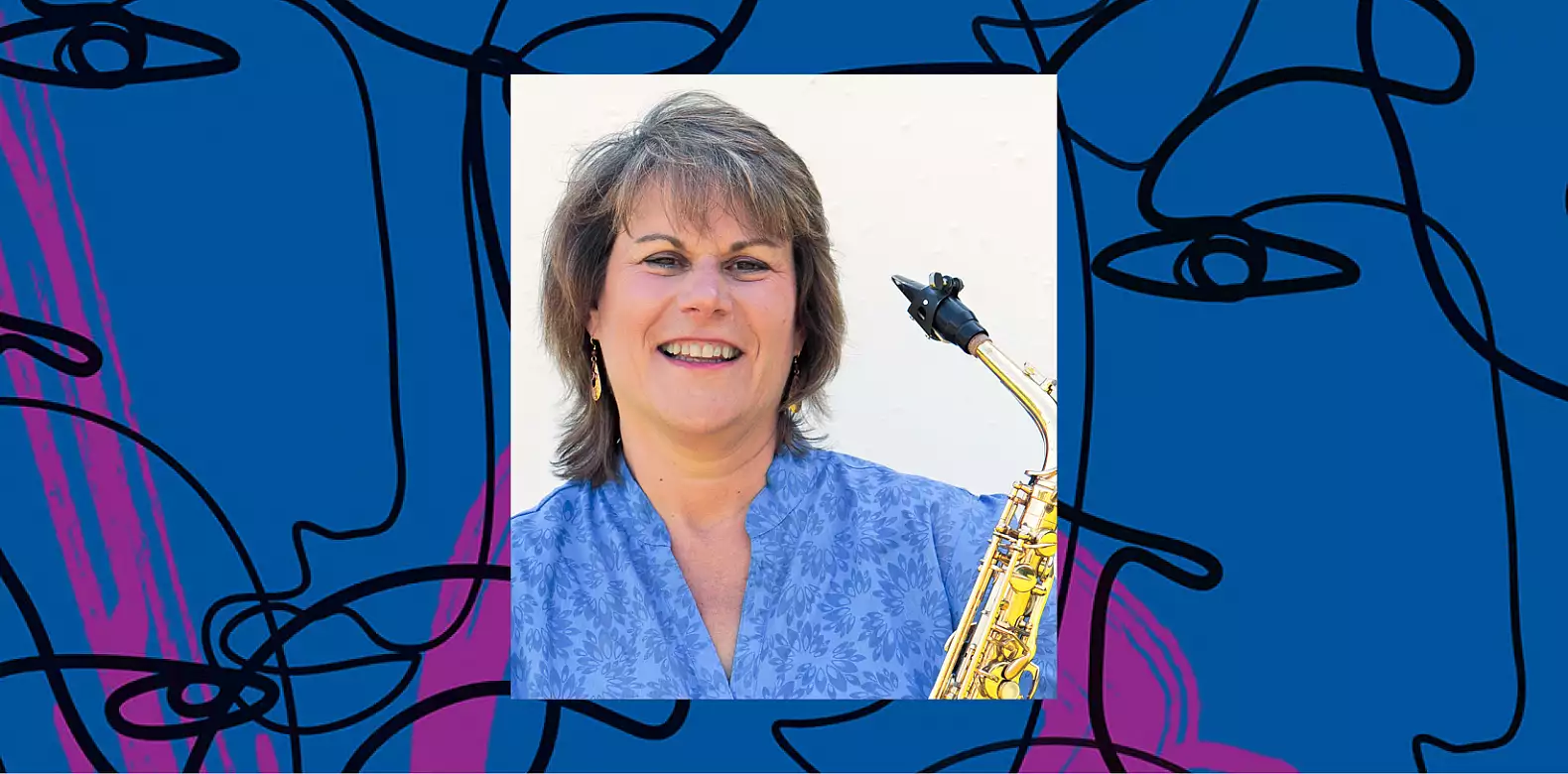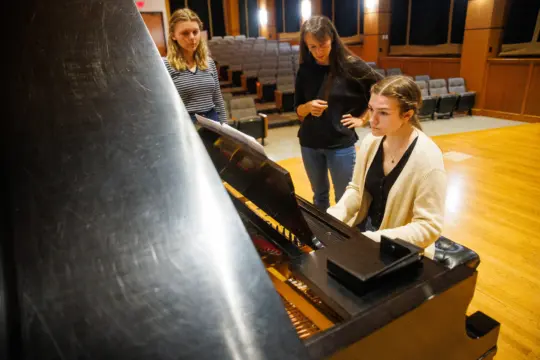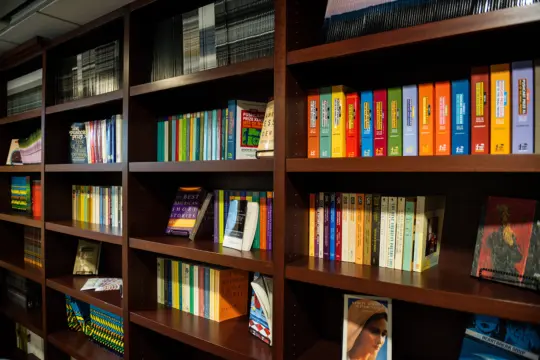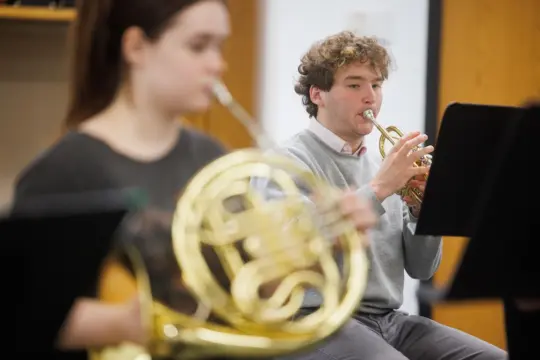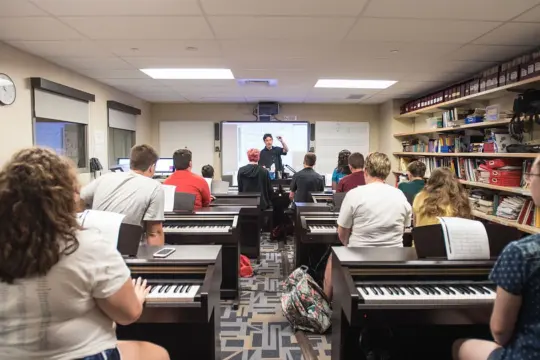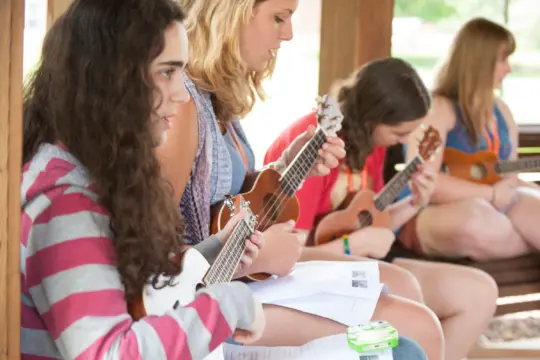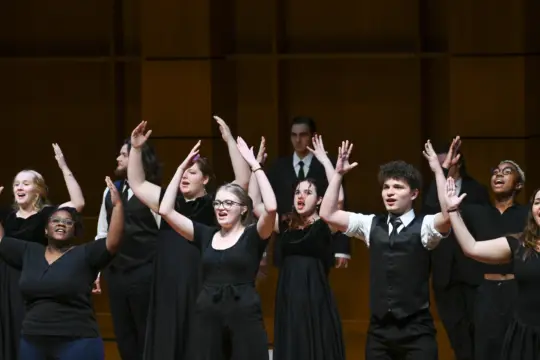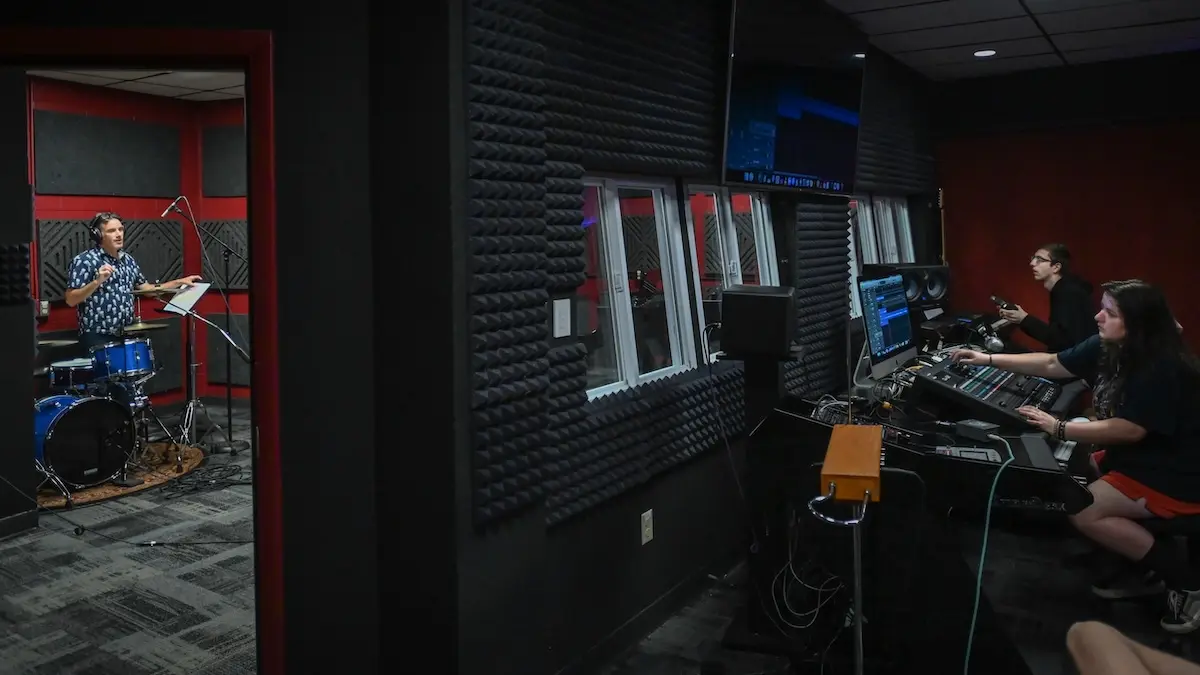
Music Technology Minor
Have you ever wished you knew how to use technology to help your garage band achieve the best sound? Or how to record and edit music like a pro? With a minor in music technology at Susquehanna University, you can do anything from manage the sound at live events and concerts or run your own music studio. The music technology minor puts that power in your hands.
No matter your level of musical experience, start right away learning studio recording and engineering. Learn how to record, edit, analyze and produce music. Make yourself at home with our state-of-the-art music industry software and equipment in our large, fully-equipped recording/computer music studio. Master the ever-evolving world of electronic or digital technology to create bold new musical possibilities.
At Susquehanna, we emphasize real-life experience so that when you graduate, you’re well-positioned to find work, and our music technology minors even have the opportunity to get paid audio and video tech jobs on campus. The minor degree program is open to students of all majors, so any student can take advantage of these real-world practical experiences. The music technology minor is a great opportunity to add valuable skills to your musical experience and to almost any career.
Performance Opportunities
Choral ensembles perform on and off campus and contribute to major university events, including the annual Candlelight Service. There are four distinct ensembles. Any student, regardless of major, may audition.
Choir
The celebrated University Choir represents Susquehanna’s great musical heritage on annual tours in Pennsylvania and throughout the Eastern United States.
Amy Voorhees, conductor
Chorale
The University Chorale performs mainly on campus in music ranging from the Renaissance to the present.
Amy Caron, conductor
Chamber Singers
The highly select University Chamber Singers are chosen from members of the University Choir.
Amy Voorhees, conductor
Chapel Choir
The Chapel Choir provides musical leadership at weekly University Chapel services and is open to all students without an audition.
Marcos Krieger, conductor
Opera Studio
The Opera Studio performs a wide repertoire ranging from opera scenes to full productions of complete operas with orchestra. The casts are made up entirely of students who audition for the Opera Studio at the beginning of each year.
In the past dozen years, the full productions with orchestra have included:
- Krása: Brundibár
- Monteverdi: L’Orfeo
- Mozart: The Magic Flute
- Puccini: Gianni Schicchi (in Italian)
- Puccini: Suor Angelica (in Itallian)
- Sondheim: Passion
- J. Strauss: Die Fledermaus
- Gilbert & Sullivan: The Mikado
- Ullmann: The Emperor of Atlantis
- Weill: Street Scene
- Weill: The Threepenny Opera
Scenes programs have included the complete third act of Puccini’s La Bohème, sung in Italian, and complete acts of Britten’s Albert Herring and A Midsummer Night’s Dream. Other recent programs have featured scenes from the following operas:
- Adamo: Little Women
- Gounod: Romeo and Juliet
- Handel: Julius Caesar
- Massenet: Manon
- Menotti: The Medium
- Mozart: Così fan tutte and Don Giovanni
- Poulenc: Dialogues of the Carmelites
- Rossini: La Cenerentola and The Barber of Seville
- R. Strauss: Arabella
- Thomas: Hamlet
- Verdi: Falstaff
- Ward: The Crucible
Opera Studio performances are held in the 320-seat Stretansky Concert Hall or in the 450-seat Degenstein Center Theater. David Steinau, director
The instrumental area provides extensive performance opportunities for players of string, wind and percussion instruments. Any student, regardless of major, is welcome to audition.
Symphony Orchestra
The Symphony Orchestra performs the great music of the Western canon along with lesser-known works and premieres. The ensemble accompanies an annual concerto competition winner and regularly collaborates on opera productions and oratorios.
Zachary Levi, conductor
Wind Ensemble
The highly select University Wind Ensemble is composed of 45 to 50 of our most experienced players and performs the finest wind band repertoire.
Eric Hinton, conductor
Symphonic Band
The University Symphonic Band performs three annual concerts of a broad spectrum of concert band literature.
Eric Hinton, conductor
Stadium Band
At all home football games, the Stadium Band performs fight songs, popular songs of the 50s and 60s, patriotic songs, R&B and funk. Audition not required.
Brett Hosterman, director
Jazz Ensemble
The Jazz Ensemble explores traditional big band tunes, as well as modern music reflecting jazz, rock and world music influences. Small combos are regularly formed to emphasize improvisation.
Gail Levinsky, director
Pit Orchestra
This ensemble provides full orchestral accompaniment for the annual fall musical.
The chamber music program provides diverse opportunities for students to study significant works for small ensembles, each of which is coached weekly by a faculty member. Each semester there may be string quartets, piano trios and brass or woodwind quintets, for example, along with Percussion Ensemble, Saxophone Ensemble, Trombone Ensemble and similar groupings.
Keyboard students have the opportunity to study with outstanding faculty and to perform in a variety of settings as soloists and collaborators. Our instrument inventory includes Steinway and Baldwin concert grand pianos and priority practice rooms outfitted with well-maintained Steinway, Yamaha and Baldwin grands.
Weber Chapel is home to beautifully refurbished Dobson and Moeller organs, on which students may practice and perform. Two additional practice organs are located in the Cunningham Center for Music and Art. We also maintain historic instruments including three harpsichords and a clavinova.
Piano students may also study organ, and vice versa, and any keyboard player may also study harpsichord.
Explore Susquehanna’s Music Degrees
Discover all the possibilities Susquehanna University’s music degrees provide. From aspiring music educators to those pursuing double majors for diverse career opportunities, you will thrive in a supportive environment.
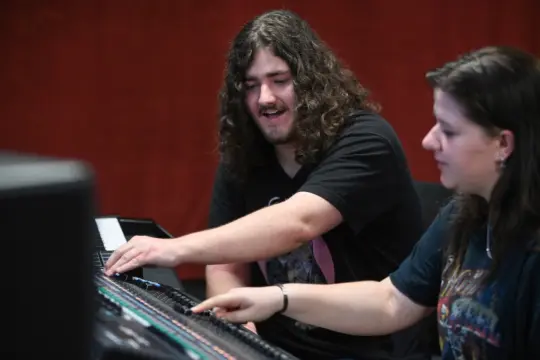
SUSQUEHANNA By the Numbers
More Than Metrics
100%
of students have full access to all campus recording studios
100%
of students produce their own music here
70%
of student acquire tech-oriented work study positions
Explore Your Studies
Program Resources
When you enroll at Susquehanna, you’ll be paired with an advisor and application tool to guide you in your course planning and scheduling. The following is an excerpt from the complete course catalog. Enrolled students follow the requirements of the course catalog for the academic year in which they declare each major and/or minor and consult with their advisor(s).
Minors in Music
The Department of Music offers six minors: music theory/literature, music performance, music technology, church music, collaborative piano and the interdisciplinary minor of arts administration.
Minor in Music Technology
Before declaring a minor in music technology, a student must obtain approval of the music technology adviser. Note that approval of this minor does not guarantee a place in the required music classes.
Students must complete with a grade of C- or better 20 semester hours of coursework:
- MUSC-355 Audio Engineering Fundamentals
- MUSC-356 Music Production in the Recording Studio
- MUSC-367 Computer Music Composition
- MUSC-368 Computer Music Performance
- 4 semester hours in an internship or music electives
Double-counting Restriction
Students minoring in music technology may only apply 8 semester hours toward a music major.
Applied Music Lessons
Lessons carry one or two semester hours of credit. Students earn credit of one semester hour for a weekly half-hour lesson. Bachelor of Arts majors take a one-semester-hour lesson on their major instrument. Music education majors and performance majors take a weekly one-hour lesson on their major instrument and receive two semester hours of credit.
A fee is charged per semester for individual lessons that are not stated specifically as curricular requirements (nonmajors or extra lessons for majors). Such lessons are contingent upon faculty availability within the normal teaching load.
- Recording engineer
- Media composer
- Music producer
- Live sound engineer
- Audiovisual tech
Recent Employers
Beyond Susquehanna
Meet the Faculty
TAKE A VIRTUAL TOUR
Launch Cunningham Center for Music & ArtYOU MAY ALSO BE INTERESTED IN
See the full list of related programs on the School of the Arts page.
Have Questions?
Contact Us
Start your journey.
